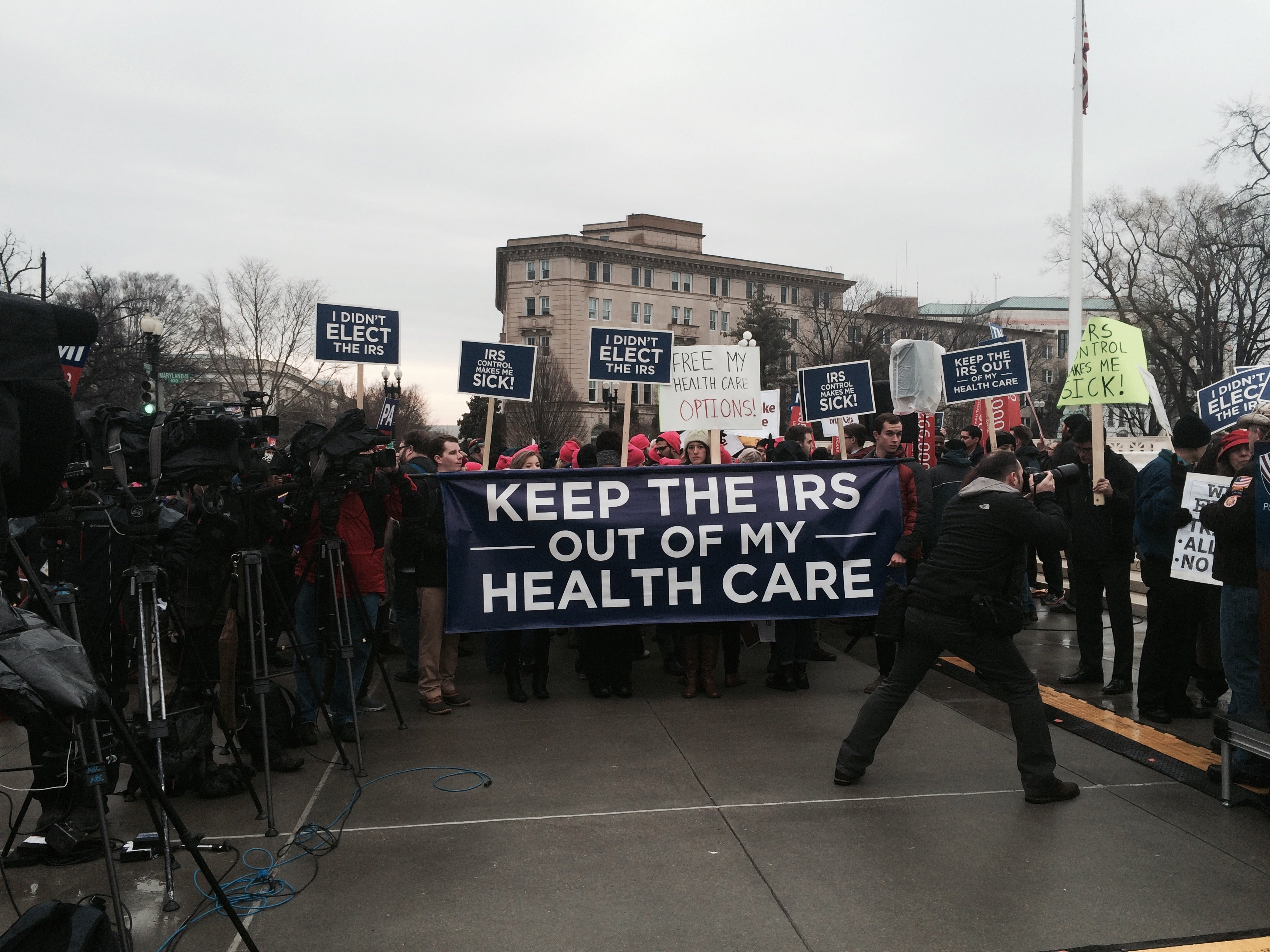The highly anticipated case that could topple the Affordable Care Act reached the Supreme Court Wednesday, and already onlookers are attempting to deconstruct the justices’ inquiries in an effort to predict how the court will rule.
The nine justices met in the marble courthouse to hear oral arguments in King v. Burwell, opting to extend the discussion for an additional 20 minutes. The court will decide whether the federal government can grant subsidies to states selling insurance through the federal exchange, HealthCare.gov.
Michael Carvin, who represents the four plaintiffs named in the case, and Solicitor General Donald Verrilli, who represents the federal government, went before the court to argue their cases and take questions from the justices.
“It’s a very intelligent court that asks a lot of pointed questions. I always think it’s stupid to try and guess how they’re going to rule,” Carvin told The Daily signal. “But I think we had a fair opportunity to present our case, and I think our case was very compelling. I’m happy with the way the argument went.”
“I think we had a fair opportunity to present our case, and I think our case was very compelling. I’m happy with the way the argument went,” said Michael Carvin, the lawyer for the plaintiffs in King v. Burwell.
The court’s right-leaning justices—Clarence Thomas, Samuel Alito and Antonin Scalia—directed their questioning toward the law’s text, specifically the statute that authorizes subsidies for states that create their own exchanges.
To the contrary, the four left-leaning justices—Ruth Bader Ginsburg, Sonia Sotomayor, Elena Kagan and Stephen Breyer—focused on the consequences of striking down the subsidies.
“In those states that don’t—their citizens don’t have subsidies—we’re going to have the death spiral that this system was created to avoid,” Sotomayor told Carvin, referencing a potential rise in the cost of insurance should the court rule against the Obama administration.
Many are looking to either Chief Justice John Roberts or Justice Anthony Kennedy to cast the deciding vote in the case.
In the first challenge to the Affordable Care Act in 2012, National Federation of Independent Business v. Kathleen Sebelius, Roberts was pivotal in upholding the law and sided with the administration.
Kennedy, meanwhile, is typically the bench’s swing vote.
In an interview with The Daily Signal, Hans von Spakovsky, senior legal fellow at The Heritage Foundation, said both justices posed difficult questions to Carvin and Verrilli.
Roberts, however, offered few clues to how he would rule in the case.
“The chief justice asked a few questions—he didn’t ask a lot,” von Spakovsky said. “But he also seemed to zero in on the text of the statute and whether it was ambiguous or not.”
>>> In Under 3 Minutes, Watch Instant Analysis on Today’s Oral Arguments in Obamacare Supreme Court Case
The justices are expected to begin private deliberations on the case Friday. A decision won’t be handed down until June.
The Affordable Care Act states that subsidies are available to customers who purchase coverage “through an exchange established by the state.” But the law also gave the U.S. Department of Health and Human Services the ability to create a federally run exchange for states that opt out of running their own.
After 34 states decided to use the federal exchange, the Internal Revenue Service extended the subsidies to all 50 states.
“One of the unfortunate consequences of the IRS rule is that they did a bait-and-switch to the states and led them not to take this deal in the first place,” Carvin said. “I’m sure that if the court restores the original deal, the states will take it up or the federal legislature will assure that no unfairness occurs to American citizens.”
If the Supreme Court rules against the Obama administration, health policy experts warn that millions of Americans could lose their subsidies. In addition, Obama administration officials feel the court’s decision could lead to the health care law’s collapse.
Opponents of the law believe the IRS overstepped its bounds and took on the role of the legislative branch.
“The goal of this litigation is not just to restrain the IRS from violating the law and taxing people without congressional authorization,” Michael Cannon, director of health policy studies at the Cato Institute, told The Daily Signal. “It’s also to create an opportunity for real and better health care reform that actually makes health care more affordable.”
>>> Commentary: The Supreme Court Heard King v. Burwell. Here’s What the Justices Asked About and Commented On.



























